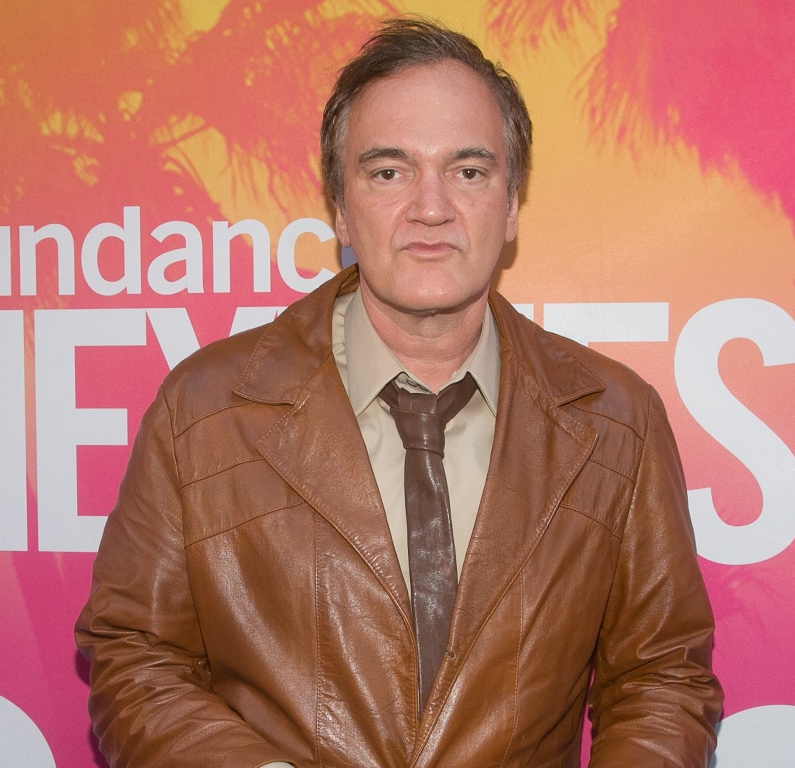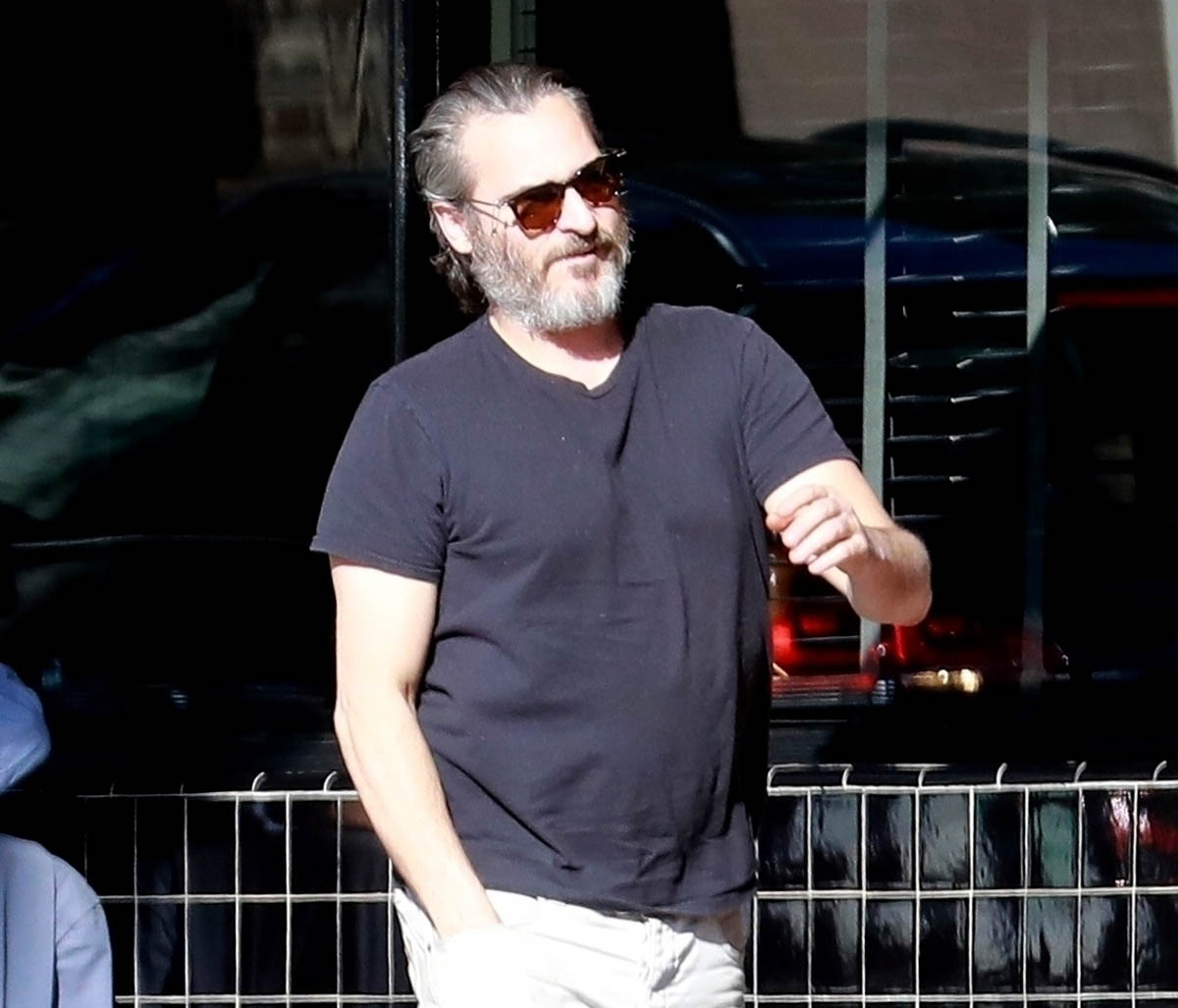Quentin Tarantino apology tour



At the beginning of the week, we heard from Uma Thurman about her history of abuse by Harvey Weinstein and, let’s say, reckless endangerment from Quentin Tarantino. It was a perfect combination of a serial predator and tyrannical director combining forces to make sure no part of a woman’s life was safe, and that she was betrayed in every possible way. In the aftermath, people were, quite understandably, upset with Tarantino, so he had to issue his second apology of the Hollywood Sex Pest Fumigation. The first came in the wake of the initial Weinstein revelations, when everyone was assessing who knew what, and when. Tarantino copped to knowing at least some of what Weinstein was like behind closed doors, and not doing anything about it. He seemed sincere, though the weight of his apology rested on his follow-through, and we still don’t know what he’s doing to make the industry a safer place for women, except apologize again.
His second apology is specifically about Uma Thurman, and came in the form of a fairly gross interview with Mike Fleming of Deadline. It opens with Fleming writing, “I offered Tarantino the opportunity to clarify because at this moment, stories get written and then picked up across the globe, often getting twisted to suit convenient narratives in this #MeToo moment.” So this is obviously very garbage, and Fleming’s tone throughout is that of the noble defender of a Great Man under fire from a bunch of hairy-legged Feminazis. Everyone is using criticism of Maureen Dowd and how she wrote up her interview with Thurman to discredit Thurman’s story—Tarantino relays he expected Dowd to call him for comments but she never did, tacitly blaming her for the fact that people are, understandably, upset—but no one is criticizing how Fleming’s gross tone makes Tarantino look worse by association.
Tarantino owns endangering Thurman on the set of Kill Bill. He drove the car one way to see what road conditions she would deal with, but when they decided to change the shot, he didn’t test it the other way, so he didn’t realize she would be dealing with a curve in the road. He even explains spitting on her as distrust of Michael Madsen, who he didn’t believe would spit right and they would have to do a bunch of takes, instead of just a couple with him doing it. Tarantino says these things like they absolve him of ill intent, but a tyrannical director is not necessarily out to hurt anyone. A tyrannical director just believes their shot is more important than the person in the shot, and nothing Tarantino says dispels the notion he put getting his Perfect Shot over Uma Thurman’s safety. He’s sorry she was hurt, he blames himself for cutting corners, but he’s secretly a hero because he found the crash footage and gave it to her.
But wait, we’re not done yet! Jezebel unearthed a 2003 Howard Stern interview in which Tarantino says some truly terrible things about Samantha Geimer, whom he dubbed a “party girl”, and was thirteen when raped by Roman Polanski. He says, “He didn’t rape a 13-year-old. It was statutory rape...he had sex with a minor. That’s not rape. To me, when you use the word rape, you’re talking about violent, throwing them down—it’s like one of the most violent crimes in the world.” Okay one, gross. And two, GROSS. This is awful, although Tarantino is hardly the only person to take this tack when defending Polanski. Which doesn’t make it okay, but it does make him a cliché. For her part, Geimer responded, “I’m not upset, but I would probably feel better if he realizes now that he was wrong, after 15 years, after hearing the facts.”
Which brings us to Quentin Tarantino’s THIRD apology. This time, he went to Indiewire to issue his statement:
“I want to publicly apologize to Samantha Geimer for my cavalier remarks on “The Howard Stern Show” speculating about her and the crime that was committed against her. Fifteen years later, I realize how wrong I was. Ms. Geimer WAS raped by Roman Polanski. When Howard brought up Polanski, I incorrectly played devil’s advocate in the debate for the sake of being provocative. I didn’t take Ms. Geimer’s feelings into consideration and for that I am truly sorry.
So, Ms. Geimer, I was ignorant, and insensitive, and above all, incorrect.
I am sorry Samantha.”
Quentin Tarantino is a great writer. He knows how to make words sound good. But this is the THIRD time he has had to apologize for, let’s call it consistently troubling interactions with women. To be fair, not everyone is troubled. Diane Kruger says her experience with Tarantino was “pure joy” and she has no bad feelings about him choking her on Inglorious Basterds, but that doesn’t invalidate Thurman’s anger. And thanks to that resurfaced Howard Stern interview, we have gone past the realm of the tyrannical director and are now solidly in the territory of just a gross dude. He’s not in trouble for assaulting anyone, but this week Tarantino has become the poster boy for the kind of complacent, complicit, smug dude who is just as harmful in his own way.
And this time, his words are not enough. He’s telling us he’s a different man today than he was fifteen years ago when he said such awful things about Samantha Geimer, and he wants us to believe he is no longer that man, and that he regrets ever being him. And he wasn’t on Uma Thurman’s side back then, but he is now, and if only Maureen Dowd had called him, he would have explained that. But we’re way past the point of explanations. Tarantino can apologize all day every day—and he basically has this week—but what really matters are his actions. He was part of a system that enabled a predator for years, and his own questionable behavior has been tolerated under the umbrella of “genius”. He’s apologized for these things, but I’m still not seeing any tangible follow-through to make his sets in particular and his industry at large a better place for women.

